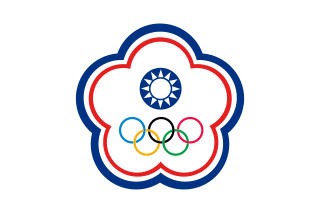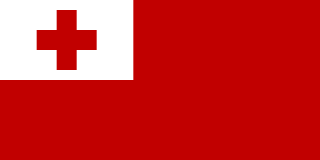The 1972 Winter Olympics, officially the XI Olympic Winter Games [dai dʑɯitɕi-kai oɾinpikɯ tokikʲogi taikai] and commonly known as Sapporo 1972, were a winter multi-sport event held from February 3 to 13, 1972, in Sapporo, Hokkaido Prefecture, Japan. It was the first Winter Olympic Games to take place outside Europe and North America.
The 1972 Winter Olympics, officially known as the XI Olympic Winter Games, was a winter multi-sport event held in Sapporo, Japan, from 3 to 13 February 1972. A total of 1,006 athletes representing 35 National Olympic Committees (NOCs) participated in 35 events from 10 different sports and disciplines.

India sent a delegation to compete at the 2006 Winter Olympics in Turin, Italy from 10–26 February 2006. This was the nation's seventh appearance in a Winter Olympic Games. The Indian delegation consisted of four athletes, two in alpine skiing, one in cross-country skiing, and one in luge. Their best performance in any event was 25th by luger Shiva Keshavan in the men's singles.

Chinese Taipei sent a delegation to compete at the 2006 Winter Olympics in Turin, Italy from 10–26 February 2006. Although the nation is known as Taiwan or the Republic of China, the International Olympic Committee mandates that the Chinese Taipei Olympic Committee flag and name is used, and not the flag of Taiwan, as per the Nagoya Resolution. This was Chinese Taipei's seventh time participating in the Winter Olympic Games. The Chinese Taipei delegation consisted of a single athlete, luger Ma Chih-hung. He finished 28th in the men's singles.
Luge at the 1972 Winter Olympics consisted of three events at Sapporo Teine. The competition took place between 4 and 7 February 1972.

Bermuda sent a delegation to compete at the 1998 Winter Olympics in Nagano, Japan from 7–22 February 1998. This marked the territory's third appearance at a Winter Olympic Games with their first coming in the 1992 Albertville Games. Bermuda's delegation consisted of a single athlete, the luge competitor Patrick Singleton. In the men's singles, he came in 27th place.

Wolfgang Scheidel is an East German former luger who won the gold medal in the men's singles event at the 1972 Winter Olympics in Sapporo. He also won three medals at the FIL World Luge Championships with one gold in the men's doubles (1965) and two bronzes in the men's singles. He won a pair of silver medals in the men's singles event at the FIL European Luge Championships.

Harald Ehrig is an East German former luger who competed from the mid-1960s to the early 1970s. He won the silver medal in the men's singles event at the 1972 Winter Olympics in Sapporo.

Wolfram Fiedler was an East German luger who competed from the mid-1960s to the mid-1970s. He won two bronze medals at the 1972 Winter Olympics in Sapporo, earning them in the men's singles and men's doubles event, respectively.

Anna-Maria Müller was an East German luger who competed in the late 1960s and early 1970s. She won the gold medal in the women's singles event at the 1972 Winter Olympics in Sapporo. At the previous Winter Olympics in Grenoble, she initially finished second after the competition was halted to three runs due to bad weather, but was disqualified with her East German teammates Ortrun Enderlein and Angela Knösel when it was discovered that they had illegally heated their runners. Enderlein, who was leading at the time, and Müller were stripped of their respective medals as a result.

Horst Hörnlein is a former East German luger and bobsleigh coach who competed in the late 1960s and early 1970s. He and Reinhard Bredow won the gold medal in the men's doubles event at the 1972 Winter Olympics in Sapporo.
Walter Plaikner is an Italian former luger and coach of Austrian descent who competed in the late 1960s and early 1970s. He was a doubles specialist, and competed alongside Paul Hildgartner. They won the gold medal in the men's doubles event at the 1972 Winter Olympics in Sapporo. Plaikner also competed at the 1976 Winter Olympics in Innsbruck, where he finished 11th in the doubles after suffering from a severe bout of flu. He retired from competition after the Games.

Leonhard Nagenrauft was a West German luger who competed in the late 1960s and early 1970s. He won the silver medal in the men's singles event at the 1971 FIL World Luge Championships in Olang, Italy.
For the 1972 Winter Olympics in Sapporo, Japan, a total of twelve sports venues were used. A thirteenth venue which was a reserved luge course was constructed, but never used in actual competition. Construction on all of the venues used took place between 1968 and early 1971 in time for the test events. The Tsuskisamu Indoor Skating Rink was not completed until late 1971 or early 1972 because the number of teams scheduled to compete at the 1972 Games was not known. At the actual luge venue used, a malfunctioning starting gate during the first run led to the results being cancelled and rerun being ordered. The results of this event led to the only tie in Olympic luge history. The ski jumps at Miyanomori and Okurayama served as host venues for the FIS Nordic World Ski Championships thirty-five years later.

Sapporo Teine (サッポロテイネ) is a recreational center in Teine-ku, Sapporo, Hokkaido, Japan. It comprises many facilities, such as the ski resort, the Teineyama Ropeway, and the Sapporo Teine Golf Club fields.

Tonga sent a delegation to compete at the 2014 Winter Olympics in Sochi, Russia from 7–23 February 2014. This was the Pacific island nation's debut at the Winter Olympic Games. The Tongan delegation consisted of one luge athlete, Bruno Banani, who had changed his name in a marketing gimmick to match that of German brand Bruno Banani. In his event, the men's singles, he came in 32nd place out of 39 competitors.
The Women's singles luge competition at the 1972 Winter Olympics in Sapporo was held from 4 to 7 February, at Sapporo Teine.
The Doubles luge competition at the 1972 Winter Olympics in Sapporo was held on 10 February, at Sapporo Teine. A malfunctioning starting gate cancelled the results of the first run. Italy, whose doubles team of Paul Hildgartner and Walter Plaikner won the first run, protested to event officials the results should stand since all contestants had suffered equally, but to no avail. After the protest was denied, a rerun was ordered.

The Republic of China, commonly known as "Taiwan", competed as Chinese Taipei at the 2022 Winter Olympics in Beijing, China from 4 to 20 February 2022. Because of the political status of Taiwan and the One-China policy, the ROC national symbols will not be used as stipulated in the Nagoya Resolution in 1979 forcing the ROC athletes to compete under the Chinese Taipei moniker since 1984.












